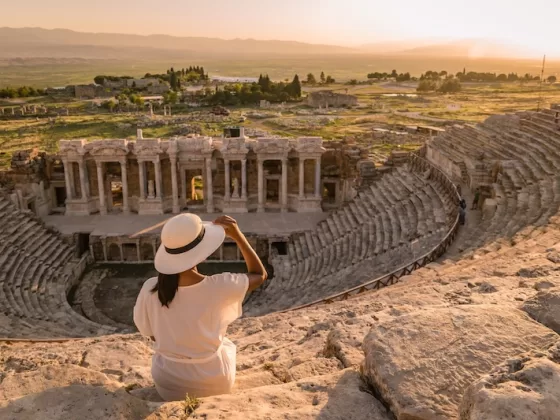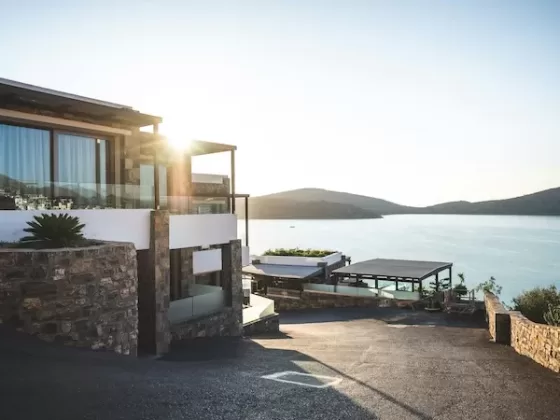Finding good deals in real estate is challenging and you don’t know where to start so this interview with Charlotte Tweed and Kevin Bupp will show you ways to focus your energy. Kevin Bupp truly wants to give value and make the world a better place, and that’s exactly what he’s doing with his new book, The Cash Flow Investor. It’s taking the confusion and intimidation out of commercial real estate investing to help more people create generational wealth and financial security. Read on for part two of Kevin’s interview.
Charlotte: What benefits are there for people to go off-market and direct to the owner to locate real estate deals?
Kevin: An off-market deal is by working directly with the property owner to acquire their asset. There’s no broker involved in the middle, and we love brokers, but there’s no broker involved in this transaction. We’re basically taking the role of a broker in dealing directly with an owner or a seller of a property. It’s great because the seller won’t have to pay a broker’s commission. It’s also a huge plus for the buyer because it allows us time to negotiate in a non-competitive environment. There are not 20 other buyers clamoring for the same property. There’s always someone else likely willing to pay a little more for a property than you.
Going directly off-market to these owners allows us to be in a one-on-one transaction with the property owner, which is a very non-competitive environment. We found about 70 percent of the assets we’ve acquired over the last decade have been direct to the owner off-market. We found we’ve been able to buy an average of approximately 20 percent below the actual retail value of property by going direct to the owner. It’s been a beautiful thing. It’s a win-win all the way around. We can buy properties with a margin of safety built-in than what a retail buyer might be able to buy.
Charlotte: Do you have a secret way to find off-market sellers?
Kevin: A lot of times they’re not sellers right away. What we have done is pick the asset class. Using mobile home parks as an example, we have studied various markets across the country. We know which markets we would like to own in, and which ones we don’t. Once we’ve homed in on those 30 or 40 markets, we assemble a team. We have a team behind the scenes who goes in and builds databases. Every single one of those mobile home parks fitting our criteria might be based on the size of the community, the age of the community, the age of the homes in the community, various standards. Our team will create a database of thousands of these mobile home parks.
They’ll dig into the database, not just by the address of the mobile home park, but they’ll go deeper. There are many different resources available to find the owners of the LLC, their home phone numbers, their cell phone numbers, and their mailing addresses. We dive deep and find out who the owners of the asset are. Then we reach out to them. We have an entire team to pick up the phone to make phone calls and open a dialogue with these owners. Again, they might not be sellers. Many times, what we have found is they’re not ready to sell today. Maybe they’ve considered it, but they’re not a seller today. We put them in our CRM system, take notes on our conversations, and create a continual follow-up process with them, whether it be weekly, or monthly, or quarterly, to stay in touch with them.
We stay top of mind because there’s always a time when a buyer or a seller needs or wants to sell. Examples of a need to sell might be going through a divorce, health issues, a partnership split up, what have you, and a want to sell. It could be someone who has owned the property for 20 years. They are ready to travel the country. The person no longer wants to put in the time the property needs. They don’t have to sell but want to sell the property. Our objective is to be top of mind when the time comes when they either need or want to sell.
Building the database, staying in contact with them and setting reminders in our CRM allows us to take the role of what a good broker do. Good commercial real estate brokers build their marketplace. They understand who all the owners are of these assets, and they try to understand the timeline for the owner where they might consider selling their property. We try to circumvent the broker and get front in line so we can be the first one considered as a potential buyer.
Charlotte: It also helps build trust with the owners as well. They know who you are and want to do business with you.
Kevin: Yes. I just got back yesterday from a trip to Missouri. I had a phone call with a family who inherited a property from their father who built it with his bare hands. It’s a mobile home park in Missouri. The daughter is now in her mid-60s and took over the park about ten years ago when her parents were sick. Both of her parents have since passed. I jumped on a plane after having a few conversations with her, met with them in person and worked with their family directly to help fulfill their needs and the voids so they can move on with their lives. They’re all tired and want to move away from this property. It’s got great memories associated with it. Their parents built it to help raise their family.
It’s also rewarding for us. That was an incredibly fun conversation. I feel the emotional ties attached to this property. It’s this a generational asset, and they’re ready to hand the keys over. The money’s important, but for these owners and sellers, it’s not necessarily the highest dollar amount they can get for it—it’s also passing the torch to someone else to continue with what they feel is their parents’ legacy. That’s also a big rewarding part of it, buying a property at the right time and getting a good deal is great, but also carrying on someone’s family legacy where they’ve put decades and decades into is rewarding. That’s happened many times over by going direct to the owner.
Charlotte: Fantastic. What is the best way to begin a cash flow investing career?
Kevin: I don’t think there’s a right or wrong answer in regard to which asset class you’re talking about in real estate. Is it residential homes? Is it commercial real estate? Is it vacation rentals? Are they long-term rentals? You can become a cash flow investor and make money in a million separate ways in real estate. First, align yourself with the correct investment vehicle. Speaking to real estate, what is the best investment vehicle that aligns with your investment for philosophy or your personality? I’ll give you an example of what this means.
I’ve got a lot of friends and folks who have made large sums of money in Airbnb rentals—the short-term vacation rental market. It’s a great fit for their personality. They’re phenomenal at staging properties. They’re great at writing sales copy and setting their property apart from all the rest on those various vacation rental sites. For me, that is not a good fit as it is not in line with my strengths. Number one, there are many moving parts associated with short-term rentals. There’s lots of turnover. You’re essentially running a hotel; you’re running a lodging business.
Vacation rentals fit certain personality types and not others. I find much more value in being a contrarian investor. Airbnb is the herd right now. I like going after the contrarian investments, the investments not on the radar of everyone at this point. Investments that can also create cash flow but allows for a much less competitive environment. Pick the best strategy for you. There are a million of them out there.
I’ll give you another example. Assisted living or senior care facilities are an extremely popular asset class today. I’m incredibly familiar with that asset class, but it’s much more of a business. It’s much more of a people business than it is real estate.
It’s got real estate associated with it, but if you don’t have a passion for helping the elderly and caring for the elderly and making that part of your life mission, then I would argue picking senior care facilities as your investment vehicle might not be the best fit. It’s your heart—it’s not just financial. Your heart must be in tune with the business model to be the best you can be at it. Pick the correct investment vehicle aligning with your investment philosophy. Now, once you’ve identified the vehicle, there are a lot of free resources out there to dive in and garner as much information as possible. Take the time to become an expert in your chosen asset class.
Twenty years ago, we didn’t have podcasts. We didn’t have YouTube. We didn’t have real estate investment meetup groups, but they were all local to us. Now, we can participate in them around the globe with other folks actively investing in the particular asset class or investment vehicles of interest. Take the time to absorb all this information. Align yourself with others who are doing it and have found success in the area you want to pursue.
Charlotte: Exactly. Know yourself, know your interests, know your passions, and align those with your goals. You had mentioned the global market, and many of our readers are interested in offshore or international real estate. How do your principles work for them?
Kevin: It’s not a matter of where you live or where you’re seeking investments. Being an investor looking for just appreciation is more speculative than being a cash flow investor and can happen no matter what country you find yourselves in. We were speaking about short-term rentals. Some Central and South American countries where U.S.-based investors have short-term rentals and they are cash flow investors. They’re diversifying their portfolio outside of the U.S. You’ll hedge against many risks associated with being sold in one country. Those principles don’t change. Those principles apply to any country, any continent you are looking to acquire and invest in real estate.
Charlotte: The principles are broad for real estate investing.
Kevin: That’s a better way to put it. There you go. Short and sweet.
Charlotte: Is there anything else you want to say as we wrap up the interview?
Kevin: We covered a lot of ground. Ask yourself why you’re investing in real estate. Be honest with yourself. What is your purpose for getting into real estate? For most folks, it’s looking to generate reoccurring income and to ensure they don’t find themselves being dishonest with themselves. Seeking reoccurring income in a more speculative investment is a lot riskier. When the tables turn, when we might see ourselves going through a recessionary period, ensure what you’re buying is put through a stress test. Stress doesn’t mean looking back over the last 12 years because the previous 12 years have been nothing but a positive upward trajectory. Compare that investment and stress test it against what the world and lending environment looked like.
I can see what rates might have looked like in that particular asset class before the recovery period of 2010, or what did it look like in 2008? What did it look like in 2007 when things were seemingly falling apart? I want to hit that point home. That is the most crucial point of this entire thing. You want to buy investments standing the test of time and not only make you money during an upward economy but also make you money when things are a little bit more challenging and stressful.
Charlotte: Real estate is a people business. It’s not just about the bricks and mortar—it’s about relationships. Like you said with the sellers and the people who live in your properties.
Kevin: Yes, it is a people business. Have fun while you’re doing it.
Charlotte: Yes. Thank you very much, Kevin, for your time today and for sharing your valuable insight. I’m glad we could connect.
Kevin: Charlotte, thank you. I appreciate you finding time for me. Thank you for having me here. It’s been a lot of fun.
Charlotte: All the best with your book launch on April 26th.
Kevin: Thank you. I appreciate it.
Want to grow your wealth but aren’t sure how to do it? Kevin Bupp’s new book will show you the roadmap to your dream future that’ll save you time, energy, and money. If you’ve been stuck in your financial situation for years, hoping for progress but never seeing it, you need to check this out here.
Read part 1 of Kevin’s interview with Charlotte here.









